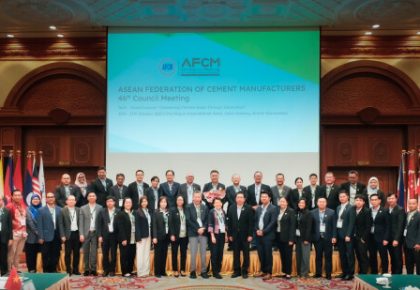
Vicat’s DECA low-carbon range has been enriched by the addition of the first carbon-negative binder that can be used to produce very-low-carbon concrete. This innovation highlights the Group’s commitment to achieving carbon neutrality on its full value chain by 2050.

To meet the demands of France’s RE2020 environmental regulations for new construction, Vicat has developed a binder that matches all the inherent properties and applications of a conventional cement yet has a negative carbon footprint, i.e. a net emissions level of less than 0 kg eq CO2/t.
This ‘carbon-sink’ binder made from a bio-based material is fully in line with the Group’s strategy for meeting the carbon-footprint reductions that regulations require for construction.
The new binder, whose environmental information modules have been verified, achieves the following net CO2 emission levels:
- -15 kg eq CO2/t for binder 0133H, whose performance is close to that of a 42.5R cement;
- -310 kg eq CO2/t for binder 2402H, whose performance is close to that of a 32.5R cement.
Several demonstrators will be presented in the spring of 2022, when the product is released.
The first projects using the binder will be able to start in 2022, once the ATEx experimental technique assessment has been issued.



